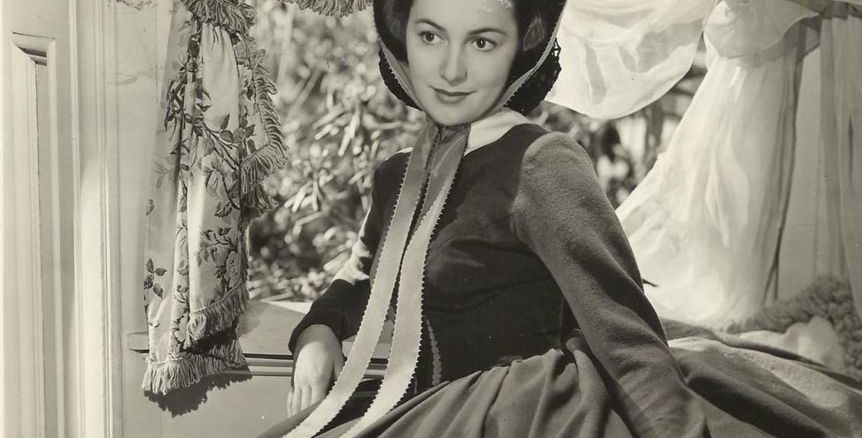
Olivia de Havilland, the last of the Golden Age of Hollywood stars, has died at her home in Paris, aged 104.
The older sister of another Golden Age star, Joan Fontaine, who died in 2013, aged 96, de Havilland appeared in 49 feature films from 1935, including eight co-starring roles with the legendary heart-throb Eroll Flynn.
She first came to prominence as a screen couple with Flynn in such adventure films as Captain Blood (1935) and The Adventures of Robin Hood (1938) as well as a number of box-office hit Westerns.
However, for many, she is best-known for her role as the selfless, loving Melanie Hamilton in the film classic Gone with the Wind (1939), for which she received her first of five Oscar nominations, the only one for Best Supporting Actress.
De Havilland, as you would expect, outlived many of her famous co-stars for decades including Australian-born (Tasmania) Flynn who died 61 years ago, aged 50.
Her Gone With The Wind co-stars, led by Leslie Howard, her on-screen husband, was the first of the film’s stars to die, in a plane crash in 1943, also aged 50, with Clark Gable dying of a heart attack in 1960, aged 59. Vivien Leigh, who played Scarlett O’Hara, died in 1967, aged 53.
De Havilland, who in recent years characterised her off screen relationship with Flynn as “romantic” after decades being generally vague when asked, believed Flynn was misunderstood by the public.
In a letter written to a journalist, de Havilland wrote of Flynn, who she once revealed played a practical joke on her by putting a dead snake in her underwear, said:
“His roguish reputation was very well deserved, as he more than candidly revealed in his remarkable autobiography, ‘My Wicked, Wicked Ways.’
“However, through this very same book, we also know that he was a reflective person — sensitive, idealistic, vulnerable and questing. But I think he has been incompletely represented by the press: It vulgarized his adventures with the opposite sex and seldom, if ever, touched upon or emphasized the other facets of his life.”
Born in Tokyo in 1916, to patent attorney Walter Augustus de Havilland and his wife, actress Lilian Fontaine, de Havilland made her big screen debut in 1935 in drama A Midsummer Night’s Dream.
She departed from ingénue roles in the 1940s and later received acclaim for her performances in Hold Back the Dawn (1941), To Each His Own (1946), The Snake Pit (1948), and The Heiress (1949), receiving nominations for Best Actress for each, winning for To Each His Own and The Heiress.
She was also successful in work on stage and television.
She appeared three times on Broadway, in Romeo and Juliet (1951), Candida (1952), and A Gift of Time (1962) and appeared in the successful TV miniseries, Roots: The Next Generations (1979), and Anastasia: The Mystery of Anna (1986), for which she received a Primetime Emmy Award nomination and won the Golden Globe Award for Best Supporting Actress in a Television Movie or Series.
During her film career, de Havilland also collected two New York Film Critics Circle Awards, the National Board of Review Award for Best Actress, and the Venice Film Festival Volpi Cup. For her contributions to the motion picture industry, she received a star on the Hollywood Walk of Fame
Her turbulent relationship with her sister Fontaine, who appeared in 45 feature films in a career that spanned five decades, was press fodder for many decades, with the two reported as not speaking and permanently estranged since the death of their mother in 1975.
Late in life, however, Fontaine gave an interview in which she denied any and all claims of an estrangement from her sister.
They remain the only siblings to have won major acting Academy Awards.
De Havilland lived in Paris from the 1950s, and received honours such as the National Medal of the Arts, the Légion d’honneur, and the appointment to Dame Commander of the Order of the British Empire.
SheSociety is a site for the women of Australia to share our stories, our experiences, shared learnings and opportunities to connect.

Leave a Reply